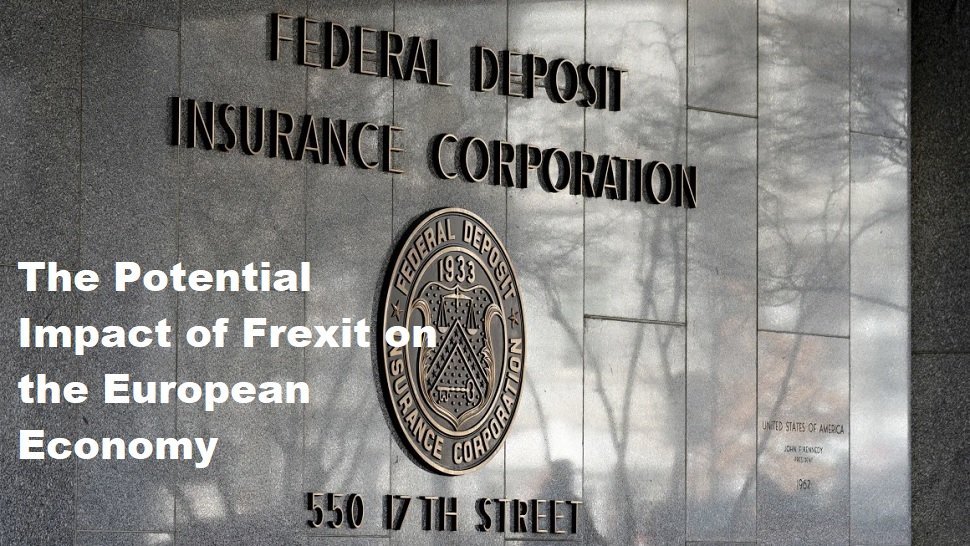Frexit is a combination of two words, “France” (France) and “exit” which refers to the idea of France leaving the European Union. This term was born from global political and economic trends developing in several other European countries, such as Brexit in the UK. Frexit was first introduced in public discussion as a concept for France to leave the European Union and pursue a more nationalistic economic policy. The reason why the term Frexit emerged is rooted in several factors. One of them is the dissatisfaction of some parties in France with European Union restrictions and regulations, which they see as hampering national economic growth. Additionally, there are also concerns about the immigration crisis and its impact on the country’s cultural identity and security.
Frexit has close ties with the French National Movement (Front National). This movement is known as a right-wing political party which acts as the main supporter of the Frexit idea. The French National Movement carries the values of nationalism, social abstinence and economic protectionism. They believe that an independent policy from the European Union will benefit France in terms of maintaining national sovereignty, the nation’s cultural identity, and restoring the country’s economic glory. Although Frexit has support from several groups, there are still many who are skeptical and see big risks if France leaves the European Union. Support for the Frexit idea is not yet strong enough to change national policy, and it is important for the French public to evaluate the long-term impact and potential consequences that may arise so that they can make wise decisions in determining the future of France’s relationship with the European Union.
The Reason Behind Frexit
National sovereignty is one of the key issues driving support for Frexit. Frexit supporters believe that the European Union has sacrificed French sovereignty in the interests of the bloc as a whole. They also want to see stricter immigration policies and a legal system that is more independent of European Union influence. In their view, membership in the European Union has weakened France’s control over its borders.
One of the main economic issues on which Frexit supports is the high level of unemployment in France. Some people believe that the European Union’s economic policies have harmed the French economy and have led to job losses for local citizens. They argue that exempting themselves from the EU’s economic rules and regulations would give the French government greater control over its economy, making it possible to create jobs and reduce unemployment.
Overall, the reasons behind the Frexit movement are varied, but at the heart of them all is the desire to restore French sovereignty and give the country greater control in dealing with its own internal problems. Dissatisfaction with EU regulations, national sovereignty issues, and the economic impact of EU policies, such as unemployment, are all major concerns for those who support the idea of Frexit. While it is unclear whether France will take the same drastic step as Britain in removing itself from the European Union, it cannot be denied that anti-EU feelings are growing stronger among some in France.
The Potential Impact of Frexit on the European Economy
Frexit, namely France’s exit from the European Union, could have a significant impact on the European economy as a whole. As one of the largest member countries in the European Union, France has an important role in the regional economy. Frexit has the potential to disrupt free markets in Europe, considering France’s role in shaping various economic policies, such as trade tariffs and investment regulations. This may result in higher uncertainty for businesses in this region. The impact of Frexit on investment can be seen from various aspects. First, investors will likely reassess the political and economic risks of investing in a divided Europe post-Frexit. Second, the formation of new regulations as a result of Frexit could result in changes in the investment climate, which might affect capital flows between countries in the region. As a result, other countries in Europe may find it difficult to attract foreign direct investment (FDI) and maintain stable external financing.
Frexit also has the potential to change the dynamics of trade between countries in Europe. As one of the founding members of the European Union, France has influenced trade rules with other countries. If Frexit happens, France will probably have to renegotiate trade agreements with other member countries. This could lead to a slowdown in the flow of goods and services between countries in the short term and a possible increase in trade barriers in the future. So Frexit’s potential impact on the European economy needs to be taken seriously. Frexit will likely cause market uncertainty and volatility, affecting investment and trade between countries in the region. However, the specific impact and magnitude of Frexit’s influence on the European economy will depend on the extent to which European political leadership can manage this process and create solutions that can minimize the negative impacts that may arise. It is important for the European Union and France to work together and overcome challenges that may be faced during the negotiation process, such as maintaining regional economic stability and reducing the risk of further divisions within the bloc.
Comparison with Brexit
Frexit and Brexit are phenomena related to a country’s decision to leave the European Union. Although both share the same feature, namely reevaluating a country’s relations with the European bloc, the political background and motivations behind these decisions are very different. Brexit has become a reality after the 2016 referendum held in the UK, while Frexit is still the idea of several French political parties, such as the National Front led by Marine Le Pen. The motivations behind these two phenomena have some differences and similarities. Both were fueled by concerns about immigration, national sovereignty and the European Union’s inefficient bureaucracy. The main difference is that the vulnerability of the British economy was a major factor in driving the Brexit decision after the 2008 economic crisis, while Frexit tended to be driven more by public dissatisfaction with France’s political and economic system which allegedly only benefited a small group of elites.
In terms of the political process, Brexit through a referendum is the main stage for reaching a final decision on whether the UK will remain a member of the European Union or not. After the referendum results showed that the majority of British citizens voted to leave, the government then began lengthy negotiations with the European Union to set the terms of the Exit Agreement. Unfortunately, these efforts resulted in deadlock in the British parliament and the overthrow of two Prime Ministers. On the other hand, the Frexit political process has not really been carried out, because the parties that control the government in France still support France’s membership in the European Union. The impact of these two phenomena is difficult to predict with certainty, but Brexit is a more concrete example for the world to see the implications of similar decisions. Post-Brexit, the UK has experienced difficulties in maintaining its economic stability and is facing major political uncertainty. However, one thing that can be learned from the Brexit phenomenon is that society has become more aware of the importance of maintaining sovereignty and national interests in an era of increasingly globalization. On the other hand, the potential impact of Frexit cannot currently be measured accurately, considering that no concrete action has been taken by the French government. However, Frexit could provide lessons for other European Union countries to pay closer attention to the handling of crucial issues underlying this movement.












